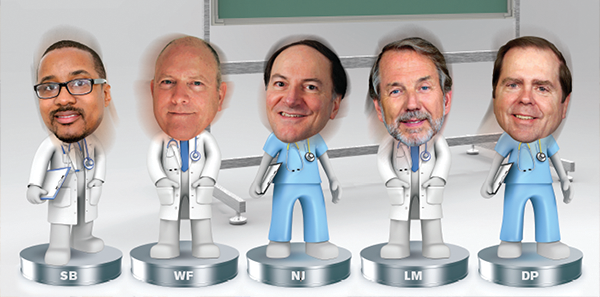
SB: There’s a very large difference among democratic groups. They don’t all fit in one shape or size, and it is a very diversified space, just like how groups that aren’t democratic are extremely different in terms of structure, resources, and location. I think that it would be a shortcoming of our discussion to just talk about the smaller, independent democratic practices that still exist because there are regional and national democratic practices that also exist. I think they address some of the very real challenges that Lynn has alluded to. I think that practice integration and meeting the standards for our hospitals in terms of population health are very difficult if you are a one service line, single, independent institution. However, democratic organizations have greatly evolved into various practice lines so that they can meet the challenges of the current health care environment and continue with their structure. Being treated fairly is an admirable starting point for many young emergency medicine doctors, but equity is a prized possession for emergency physicians. If you’re able to maintain your equity and diversify your deliverables so that you can meet the expectations of your hospital, well, that’s great, but there are significant pressures that are forcing the smaller democratic and nondemocratic independent practices to look at other options. However, I think that many of these single, independent places believe that being democratic is the problem when it’s really a lack of diversification and economies of scale that are the problem, and we shouldn’t mix those two together. There are plenty of single, independent groups that are in a good place and have great relationships that can keep on going for “X” period of time. I think that eventually the health care environment will show its cards, and you will see, from different regions of the country, those pressures will either make these independent democratic practices look for other options or be able to remain viable.
Explore This Issue
ACEP Now: Vol 34 – No 11 – November 2015NJ: I agree with that. It is a matter of scale more than anything else. I think docs are smart enough that they can run a business if they have to, but many are choosing not to, unless you’re big enough to be able to compete and win.
RM: What are the pros and cons of the democratic group versus nondemocratic group as we see the market consolidate, not only to take on risk but also to move toward population health? Do we see pros and cons of the different models?





No Responses to “Emergency Medicine Leaders Discuss How Democratic Groups Manage Scale, Consolidation”